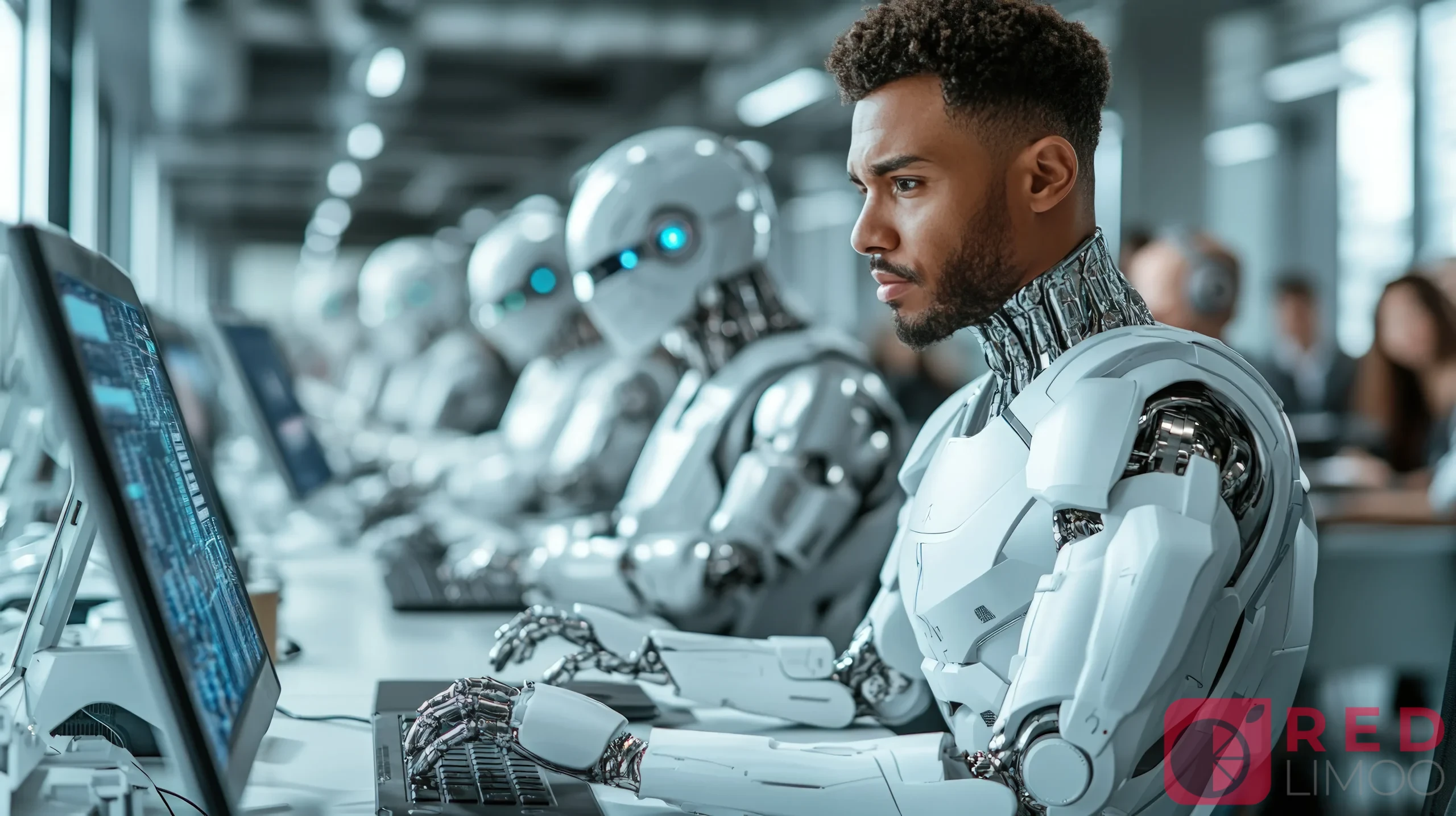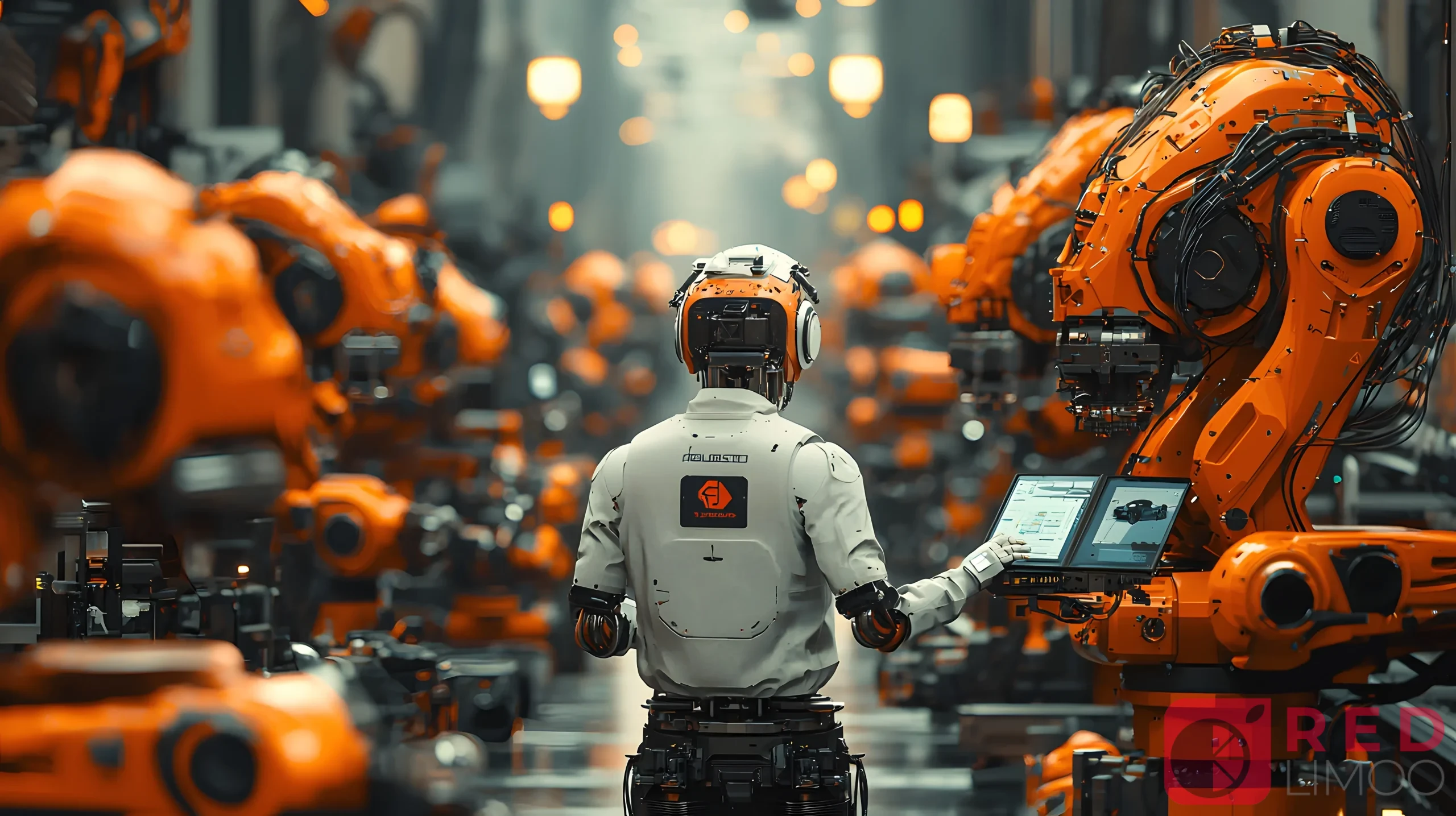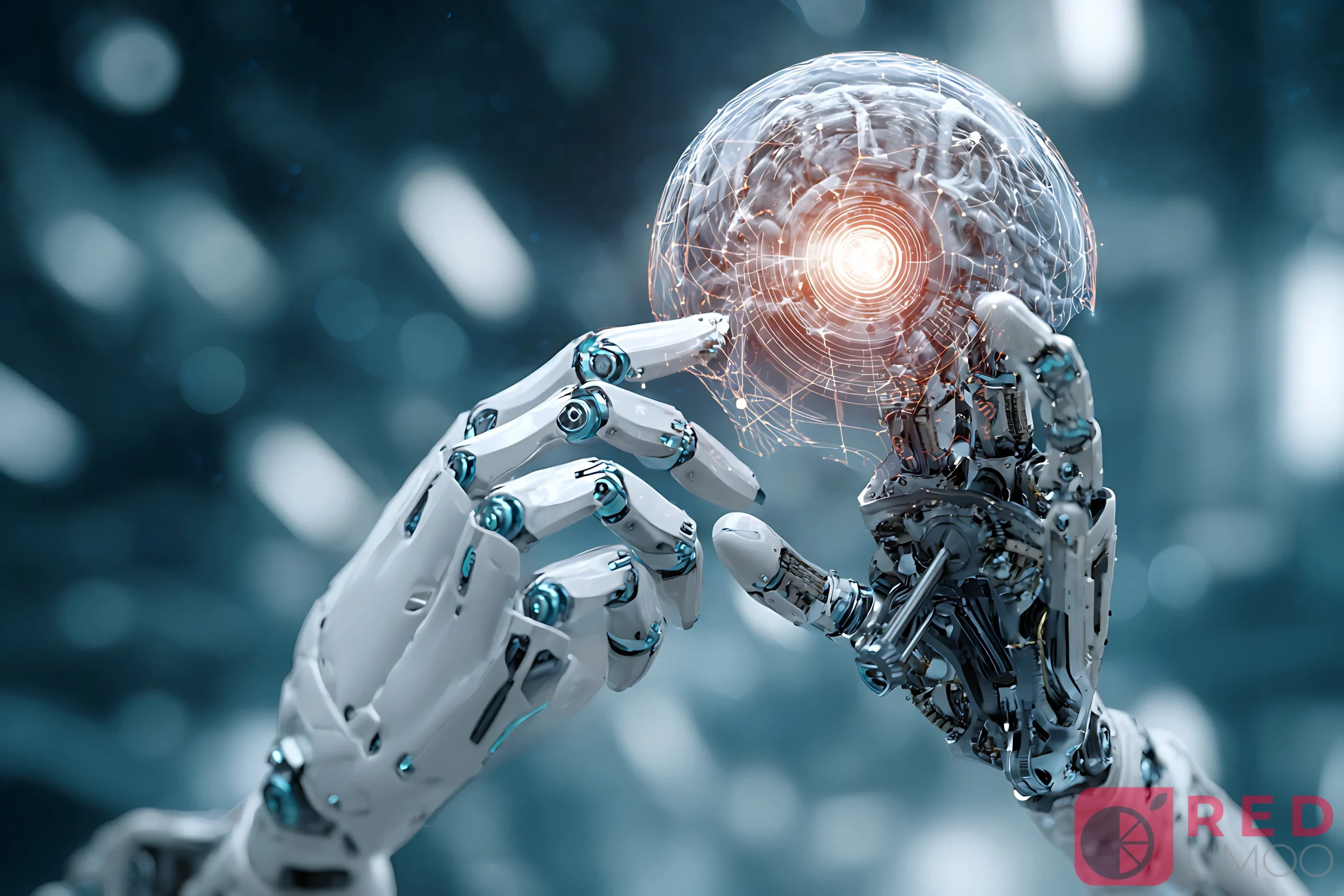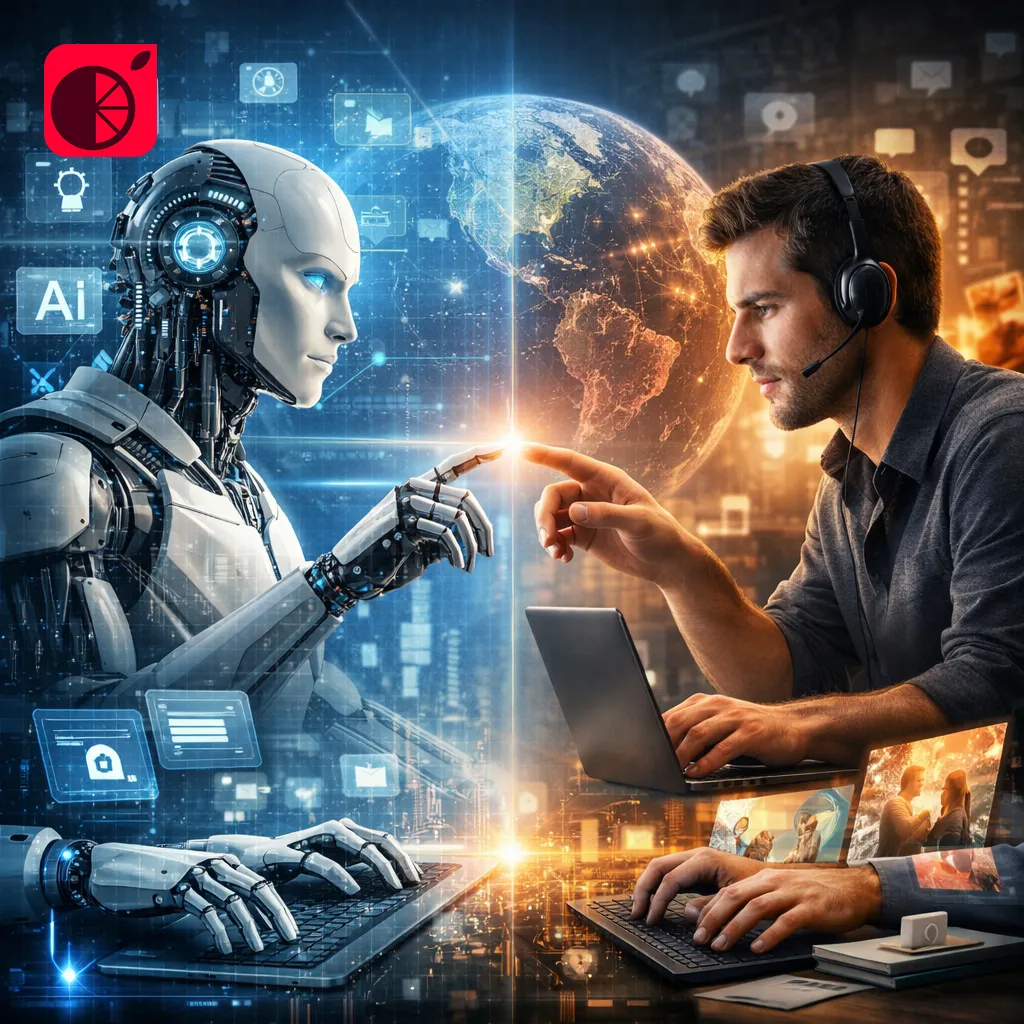The Future of Jobs in the Age of Artificial Intelligence: What Skills Will Remain Valuable?
The world of work is undergoing one of the biggest transformations in history. Artificial Intelligence (AI) is rapidly entering all industries, reshaping how we work, hire, and even learn.
Today, the question is no longer if jobs will change — but how we can prepare for that change.
In this article, we’ll explore — in simple and practical terms — which jobs are at risk, what skills will remain valuable in the future, and how you can make the most of opportunities in the AI era.

Redlimoo Services: Design & Development Services of Exclusive Website that suit your Business
Go Beyond a Basic Website — Build a Brand That Lasts !
The Impact of Artificial Intelligence on the Global Job Market
Like the Industrial Revolution, AI isn’t destroying jobs — it’s transforming them.
According to the World Economic Forum (2025):
-
Around 85 million traditional jobs may be displaced worldwide.
-
But simultaneously, 97 million new roles related to technology, data, and creativity will emerge.
This data clearly shows that the future belongs to people who learn how to work with AI, not against it.

Redlimoo Services: Our Digital Marketing – Services & More
Ready to transform your brand?
Jobs Most at Risk of Automation
Some professions are more vulnerable to automation than others.
Here are three main categories:
1. Repetitive and Predictable Jobs
Tasks like data entry, basic accounting, quality control, and phone-based customer support are now handled efficiently by AI software and robots.
2. Transportation and Logistics
With self-driving vehicles, drones, and smart navigation systems, many transportation-related roles are evolving or disappearing.
3. Machine-Generated Content
AI tools can now write news articles, product descriptions, or social media posts.
However, creative, emotional, and human-centered content still requires human input.

Skills That Will Remain Valuable in the Future
In a world where machines learn and make decisions, human and hybrid skills are the most valuable assets.
1. Critical Thinking and Data Analysis
Understanding data, asking the right questions, and making logical decisions are key skills of the 21st century.
AI generates data — but humans interpret and guide it.
2. Creativity and Innovation
Machines imitate patterns, but only humans can create something truly new.
Product design, marketing, art, and even strategic management depend heavily on creativity.
3. Emotional Intelligence and Communication
Empathy, negotiation, teamwork, and understanding emotions are irreplaceable human traits.
4. Continuous Learning and Adaptability
In an era of rapid change, the ability to keep learning is the most important skill.
Those who learn how to learn will always stay ahead.
5. Technical Skills Complementary to AI
Knowledge in fields like data analytics, programming, cybersecurity, UX/UI design, and tech project management will help you collaborate with AI, not compete against it.

Top 10 Future-Proof Jobs in the Age of AI
If you’re seeking a stable and future-oriented career path, these ten fields are expected to grow the most by 2030:
| Job | Short Description | Growth Outlook (by 2030) |
|---|---|---|
| 1. Data Analyst | Interprets data for smarter decision-making | 🔼 Very High |
| 2. Cybersecurity Specialist | Protects systems and data from attacks | 🔼 High |
| 3. UX Designer | Builds user-friendly digital experiences | 🔼 High |
| 4. Machine Learning Engineer | Develops AI algorithms | 🔼 Very High |
| 5. AI Ethics Specialist | Studies the ethical and social impact of AI | 🔼 Medium–High |
| 6. Creative Content Producer | Produces emotional and human-centered content | 🔼 High |
| 7. Digital Skills Trainer | Teaches emerging digital skills to the workforce | 🔼 Very High |
| 8. Digital Transformation Manager | Leads businesses through tech-driven change | 🔼 High |
| 9. Human Therapist or Counselor | Fields requiring empathy and personal connection | 🔼 Stable |
| 10. AI Application Developer | Designs AI-based tools for various industries | 🔼 Very High |
Real-World Example: Job Transformation in Iran
In Iran, the signs of this transformation are already visible:
-
Banks are using Persian-language chatbots to respond to customers.
-
Large companies rely on data analytics tools for market forecasting.
-
Content creators are learning to use tools like ChatGPT and DALL·E to boost productivity.
The message is clear: Jobs aren’t disappearing — they’re evolving.

How to Prepare for the Future
To stay relevant in the age of AI, you must combine human and digital skills.
Here are practical tips:
-
Learn AI tools relevant to your field.
-
Strengthen soft skills like creativity, critical thinking, and negotiation.
-
Take online courses (Coursera, Udemy, Faradars, etc.).
-
Build a personal brand on professional platforms like LinkedIn.
-
Embrace lifelong learning as part of your career.
Frequently Asked Questions (FAQ)
1. Will AI completely eliminate jobs?
No. AI automates certain tasks but simultaneously creates new roles in creative, analytical, and managerial fields.
2. Which jobs are safer?
Jobs involving creativity, strategy, emotional intelligence, or human connection are less at risk.
3. How can I start learning about AI?
Begin with basic data literacy, analytical thinking, and hands-on use of common AI tools in your industry.
4. Are these changes visible in Iran too?
Yes. From banking to education and content production, many Iranian businesses are already adopting AI technologies.
The age of Artificial Intelligence has begun, rewriting the rules of the job market.
But contrary to fear, the future isn’t dark — it’s a chance for growth, creativity, and reinvention.
Those with open minds, a love for learning, and strong human skills won’t lose their jobs — they’ll lead in this new era.
At RedLimoo, we leverage artificial intelligence and modern standards to help you prepare your business for the future. Contact us today to learn more and collaborate with RedLimoo.

